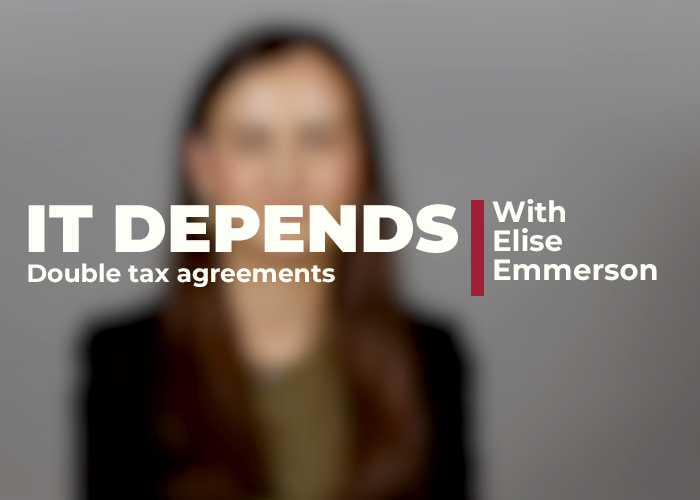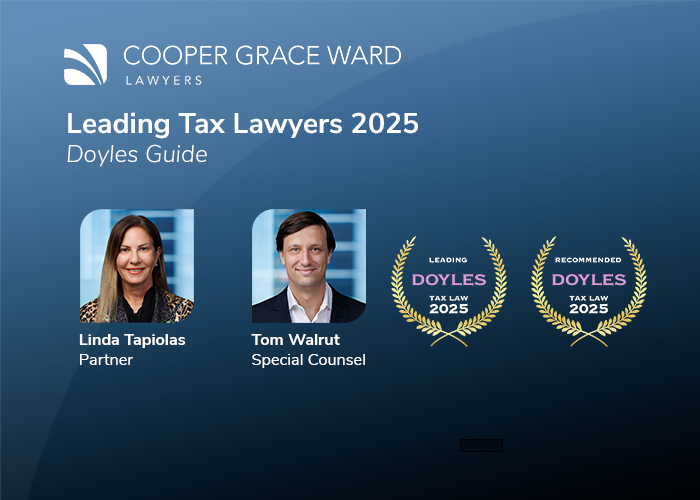In this edition of ‘It depends’, lawyer Elise Emmerson discusses what Australian expats need to know about double tax agreements.
Video Transcript
Hi and welcome to this edition of It Depends. Today I’ll be discussing what Australian expats need to know about double tax agreements.
I’m an Australian expat – What do I need to know about double tax agreements?
If you’re an Australian expat living and working overseas, it’s important to consider whether there’s a double tax agreement between Australia and the country that you’re living and working in and this is important because if you continue to have connections to Australia, the ATO may consider that you continue to reside in Australia for tax purposes and are therefore a tax resident. But at the same time you might also be a tax resident of the foreign country that you’re living and working in.
When do double tax agreements apply?
Double tax agreements apply when you’re an Australian tax resident, but also a tax resident of a foreign country. So, Australia doesn’t have a double tax agreement with all countries, so it’s important to check whether there is a double tax agreement in place. But in saying that there is a double tax agreement with countries such as the UK, US, Singapore, Thailand and New Zealand. It’s important to note that for a double tax agreement to apply, it really is critical that you’re a tax resident of both countries. So, it’s important to seek advice from a local tax adviser confirming that you are a tax resident under the domestic laws in the foreign country that you’re living and working in or intend to live and work in. And this is separate from an immigration or citizenship test. So, it really is important to seek advice on this issue.
What does the residency article in the double tax agreement do?
Most double tax agreements that Australia is a party to contain a residency article and the effect of this residency article is that it will deem you to be a tax resident of any one of the two countries. The residency article and each double tax agreement is different, so it’s important to check the specific test. But generally the residency article contains a tiebreaker test and this considers the location of your permanent home, the location of your habitual abode and also the location of your personal and economic relations.
What evidence should I keep?
In any review by the ATO, the taxpayer has the burden of proof. So, it’s important to keep evidence to substantiate that the double tax agreement applies and also evidence to substantiate the application of the tiebreaker tests in the residency article. So, this could include evidence such as a letter of advice confirming your residency position in both Australia and also in the foreign country and it could include also evidence to substantiate the tie breaker tests such as lease agreements to provide evidence as to where your permanent home is located.
But what about the proposed new residency rules?
We currently have expat clients who are concerned about the new residency rules that were proposed in the 2021 budget. However, the double tax agreement’s application is not impacted by these proposed new residency rules as they are currently. So, it will become more and more critical for our clients to be able to substantiate the application of the double tax agreement to their circumstances going forward. Please feel free to contact a member of the tax team here at Cooper Grace Ward if you’d like any advice on your residency position or the application of the double tax agreement to your circumstances.




